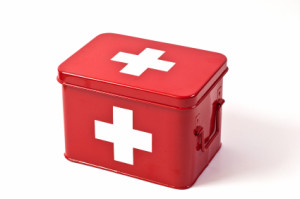May 8th, 2011 by Bryan Vartabedian, M.D. in Opinion
2 Comments »

Doctors are preoccupied with consumer review sites and the potential for bad press. Often the first impulse is to put the law on your side. Consider, for example, Dr. Kimberly Henry, cosmetic surgeon who last year initiated legal action against at least 12 reviewers from sites such as Yelp.com and DoctorScorecard.com.
While she may feel some sense of satisfaction in her quest for justice, I’m guessing many read the reviews to see what the fuss is all about.
Actions like these reflect a fundamental misunderstanding of modern reputation management. Physicians who react against patient dialog should understand the Streisand Effect. The Streisand Effect is an online phenomenon in which the attempt to remove or hide information is met with the unintended consequence of greater attention.
Instead of a prohibitive, reactive position against patient comments, doctors should consider a preemptive, proactive approach to dialog. Andy Sernovitz had it right when he suggested, ‘the solution to pollution is dilution.’ Work for good ink. It’s hard to get worked up about 10 poor reviews when you have 350 great reviews.
When physicians take action against patient reviews or even work to prevent reviews they raise a glaring red flag. We’re unlikely to win the battle against public dialog.
*This blog post was originally published at 33 Charts*
May 4th, 2011 by Bryan Vartabedian, M.D. in Opinion
No Comments »

Should physician social networks include chiropractors? I don’t think so.
My human signal likely wouldn’t benefit from a chiropractor’s input. Similarly, I’m not sure that a chiropractor would benefit tremendously from the input of allopaths and osteopaths. This isn’t a judgment about any chiropractor’s value, it’s just that our worlds are too divergent. To suggest that ‘we all just need to get along‘ is missing the point. Complementary physical care has its place. But a great community is about people who have the capacity to make one another stronger through cooperative relationships.
I suspect that the chiropractors have the numbers to support a tidy little vertical of their own. There’s a big opportunity for someone so inclined.
Would I willingly participate in a network that connects MDs and chiropractors? I would if the network proved valuable. And that can be a challenge independent of who you invite. Sermo, for the record, excludes chiropractors from membership.
Nicholas Christakis in Connected suggests that all of this should evolve on its own, independent of what any of us individually believe.
We do not cooperate with one another because a state or a central authority forces us to. Instead, our ability to get along emerges spontaneously from the decentralized actions of people who form groups with connected fates and a common purpose.
What do you think?
*This blog post was originally published at 33 Charts*
April 26th, 2011 by Bryan Vartabedian, M.D. in Opinion, Quackery Exposed, Research
No Comments »

They’re here: Creeping researchers who see the opportunity that’s social media. Publications, position papers, professional guidelines and policies on social media are appearing faster than you can say ‘ARA grant opportunity.’ A simple search will show that some of these authors have little more than a token feel of what its like to be a doctor in the social space. And they’ve got just enough of a footprint to fool the editors. “They’ve actually got a Twitter account. They must know what they’re talking about.”
The next time you see a policy or a guideline coming from a society or medical professional organization, deep search its authors. Look to see if they have the experience and social scars to guide you as a professional. If you’re a professional society or journal, be sure to do the same. Thoroughly vetting the social media experience of authors should be part of peer review when it comes to medical research and policy generation in social media. Otherwise expect those who have never experienced social media to position themselves as the new voice of authority. Read more »
*This blog post was originally published at 33 Charts*
April 17th, 2011 by Bryan Vartabedian, M.D. in Humor, Opinion
No Comments »

 I’m sure you’ve seen them on medical blogs: Disclaimers that remind readers to call 911 in the event of emergency.
I’m sure you’ve seen them on medical blogs: Disclaimers that remind readers to call 911 in the event of emergency.
But is someone choking on a hot dog really going to dial up KevinMD or SeattleMamaDoc for help? Does anyone really believe that 33 charts is the place to deal with your acute airway obstruction when you have a just a couple of minutes to live?
Here’s my theory: I suspect that the first attorney who came up with the 911 disclaimer did so as some sort of perverse joke. And rather than seek the input of their own lawyers, all those who followed simply copied the this original language believing it to be judicious and most conservative. Now it’s the longest running gag in legal history. Read more »
*This blog post was originally published at 33 Charts*
April 11th, 2011 by Bryan Vartabedian, M.D. in Medblogger Shout Outs, Research
No Comments »

 It seems for many doctors Twitter activity is an outpost connected to some other online place. 48% of physicians on Twitter link to their blog according to Katherine Chretien’s recent study published in JAMA. Doctors apparently understand that different types of information flow better in different channels.
It seems for many doctors Twitter activity is an outpost connected to some other online place. 48% of physicians on Twitter link to their blog according to Katherine Chretien’s recent study published in JAMA. Doctors apparently understand that different types of information flow better in different channels.
If you had asked me I would have estimated that this Twitter-blog association was much lower. Of course I like to believe that I understand the social doctor better than I actually do. And this is why we need original research like Katherine Chretien’s.
*This blog post was originally published at 33 Charts*















